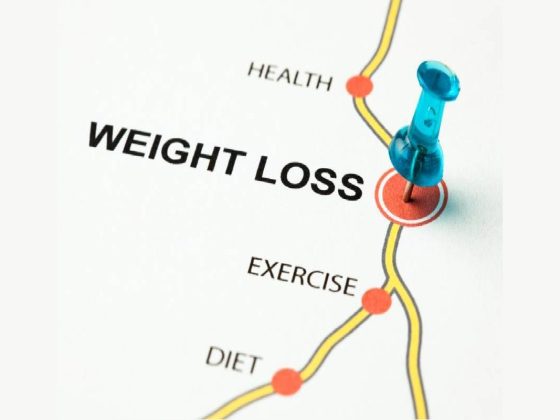Addiction And Gain Control
People suffering from substance addiction may find it challenging to start their recovery journey for several reasons. To them, it may be difficult to accept that their consumption of dangerous substances has spiraled out of control and that drug or alcohol addiction has taken over their lives. Some may also believe that it’s impossible to resist their urges and temptations – that the situation they’re in is irreversible and they’ve got nowhere to go.
However, recovering from substance abuse is possible if the patient receives the appropriate treatment and support needed. Also, addiction recovery requires willpower and resilience against multiple challenges to succeed. For these reasons, patients need to equip themselves with knowledge, resources, and determination that will propel them towards complete recovery.
If you’d like some tips on how you can break away from the grip of substance addiction and find out more about how you can regain control of your life for the better, here are some suggestions you may find helpful:
Table of Contents
1. Begin With Admission And Acceptance
One of the most significant steps toward substance abuse recovery is admitting that there’s a problem and accepting the current situation at hand. This step is crucial as many who suffer from addiction find it difficult to recognize that they’ve developed harmful habits detrimental to their life and those around them such as their partners, family and friends, colleagues at work, and others.
Moreover, some substances such as alcohol and narcotics can influence a person’s reasoning and judgment. Being under the influence of illegal substances can negatively impact an individual’s ability to discern and make proper decisions for themselves. Due to this, patients often require guidance and support in acknowledging the problem and taking responsibility for the outcome.
2. Reflect On The Impact Of Addiction On Your Life
Addiction And Gain Control – Reflecting on how addiction has influenced your life is another crucial step towards recovery. Doing so will help you compare your way of living before substance abuse and how it has transformed, whether for the good or bad, after the experience. This way, you’ll be able to determine the areas of your life that you need to work on to achieve optimal health, well-being, and contentment.
Furthermore, you can also restore other aspects that may have been negatively impacted by substance dependence, such as your employment, hobbies, interests, and relationships with others.
3. Determine Your Goals For Recovery
Once you’ve decided to take the first step to eventually overcome substance addiction, you’ll need to set clear goals for your recovery. This is very significant as your goals will help you devise a plan to help you restore your health and well-being in a way that would be feasible based on your current life situation.
For instance, patients who want to curb alcohol dependence may need to prioritize learning coping habits that they can use to resist urges and temptations. Some may also set goals to regain their physical health that has deteriorated due to substance abuse and long-term self-neglect.
Meanwhile, it’s essential to consider how practical and realistic your goals are to ensure that they’ll be helpful in your recovery journey. If you’re unsure where to start, you can consult with an addiction counselor or a doctor to better understand your condition and set smart goals to help you overcome it.
4. Prepare To Make Significant Lifestyle Changes
Addiction And Gain Control – Once you decide to make the change, you’ll need to prepare to make impactful adjustments to your habits, behavior, and way of living. These changes may seem daunting at first, but with proper preparation, you’ll be able to cope better and have a clear understanding of your recovery process. Also, you can set realistic expectations, which will help you deal with any setbacks along the way.
Case in point, your doctor may recommend that you enroll and partake in a rehabilitation program in an in-house facility to ensure a fast and effective recovery. To comply with this, you’ll need to make arrangements at work and home to ensure that everything is in order before checking in to a mental health care facility. In many ways, checking in to a treatment facility will require you to make considerable changes in your daily lifestyle, which is why ample preparation is needed.
5. Seek Professional Help
There are different forms of professional assistance available for patients seeking to recover from substance dependence. The treatments may vary depending on the cause and severity of the disorder. Additionally, the duration may also differ on a case-to-case basis.
As an example, those recovering from alcohol abuse may require medical treatments, group therapy, or counseling. On the other hand, patients who suffer from mental disorders due to drug dependence may require psychotherapy and in-patient care.
Access to medical treatments and professional support will be incredibly beneficial for your recovery. Thus, it’s essential to seek help from a doctor, psychologist, or addiction counselor for consultation and treatment. Aside from these professionals, you may also require assistance from counselors and therapists who’ll help you identify unhealthy thought patterns or risky behavior and learn strategies to overcome them.
6. Reach Out To Your Support System
Addiction And Gain Control – The path toward recovery may pose some challenges to patients and some of these obstacles may be too difficult to handle alone. Hence, patients undergoing substance abuse treatments are often encouraged to contact their support systems, such as family, friends, and loved ones who can help them when needed.
Namely, many patients experience intense withdrawal symptoms in the initial stages when they cease to consume addictive substances. These symptoms may include mood and appetite changes, sleep difficulties, vomiting, and fatigue. Due to the pain and discomfort substance withdrawal may bring, it may be difficult for the patient to care for themselves and do daily activities. Henceforth, having a friend or family member around will help ensure that the patient is cared for and attended to as required.
Meanwhile, those who have developed mental disorders due to substance misuse may opt to isolate themselves to avoid triggers socially. Yet it may be overwhelming to handle urges and resist temptations alone. In this case, having people who support one’s recovery process will be helpful for the patient’s health and safety.
7. Identify Your Triggers
A trigger can be a person, place, events, situations, or things that provoke an emotional reaction that causes a recovering patient to relapse and use substances again. Without proper preparation, guidance, and support, these triggers can quickly derail one’s recovery journey and make it even more challenging to get back on track once a relapse occurs. Accordingly, it’s essential to identify your triggers and learn coping skills to help you manage your reaction when exposed to them.
Here are some examples of common triggers for patients recovering from substance abuse:
- Exposure or access to addictive substances;
- Stressful situations;
- Contact with people who enable their addiction;
- Unsupportive or unhealthy social environment;
- Isolation and lack of support system;
- Mental disorders; and
- Health ailments.
Once you identify your triggers, you can learn how to manage them by learning safe and healthy coping skills.
One example of coping skills that can help you fend off triggers includes distancing yourself from addictive substances and other triggering events, places, or people in your life. Aside from minimizing temptations, doing so will help you divert your attention to other things that can help you stay on track.
8. Engage In Physical Activities
Addiction And Gain Control – Patients recovering from substance abuse are often encouraged to work out regularly. Exercising is considered some of the best ways to improve one’s health and wellness, and it can also help manage emotional and mental distress. On that account, it’s best to find ways to engage in more physical activities and make them a part of your routine.
Here are some tips on how you can boost your physical activities:
- Spend more time outdoors;
- Be more active while at home by doing household chores and tasks;
- Play sports;
- Follow a regular exercise routine; and
- Try new activities that require breaking out a sweat like swimming, hiking, and others.
Besides physical activities, you can also include more social interaction in your daily routine. Being around others can motivate you to participate in more activities that require movement, such as playing, walking, or jogging. In addition, having social connections will help boost your emotional and mental health.
9. Boost Your Awareness About The Possibility Of Relapse Episodes
One of the most challenging aspects of recovering from substance addiction is experiencing a relapse. Some patients may be more prepared against it than others and it’s possible for those living in sobriety for a long time to fall into temptations and turn back to old habits. Because of its risks, experts advise patients to equip themselves with knowledge and information that can help them avoid relapsing after recovery.
Additionally, while relapsing is avoidable, patients may benefit more from accepting the possibility of making mistakes along the way. It’ll be easier for them to ask for help and let go of guilt and shame from going off-track with their healing journey.
Feeling guilt and embarrassment will be detrimental to the patient’s confidence and self-esteem and may also prevent them from reaching out to others for help when needed. Thus, it’s essential to keep an open mind when facing difficulties or temptations.
Conclusion
The road to recovery can seem daunting for many patients with substance abuse disorders, which may cause some to think twice before seeking help. But it’s important to note that challenges are integral to the recovery process. While the journey may not be as easy initially, it’s vital for patients to stay determined and focused for the treatments to be effective. Lastly, learning healthy habits and coping skills is equally essential to a successful recovery.


